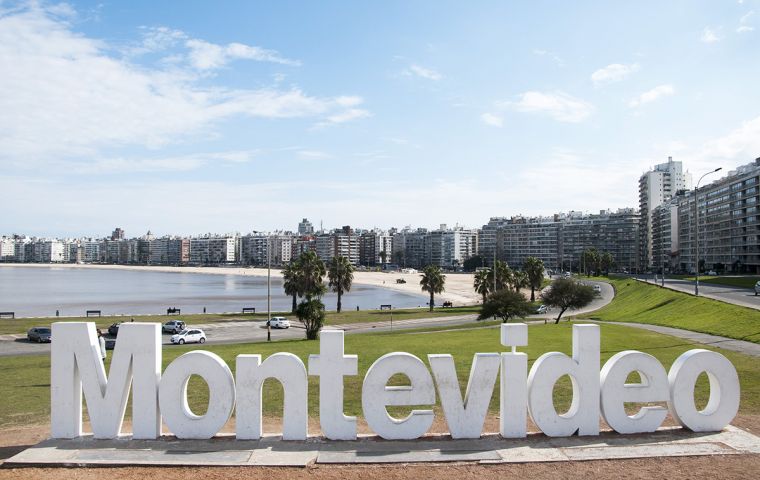MercoPress. South Atlantic News Agency
Montevideo: The most expensive city and the best place to live in Latin America?
 Unlike the cities studied of the great neighbors, Brazil and Argentina, Montevideo (and Uruguay) stands out for the quality of its democracy and its relative economic stability
Unlike the cities studied of the great neighbors, Brazil and Argentina, Montevideo (and Uruguay) stands out for the quality of its democracy and its relative economic stability The Uruguayan capital is the most expensive and the best to live in the region. At least that's what the studies of The Economist, which positioned Montevideo behind Mexico City in terms of cost, and the consultancy Mercer, which places the capital at the top of Latin American quality of life ranking, revealed in publications made this month. El País (Madrid) explains that Montevideo has a “crazy decadent charm”. However, why does this phenomenon occur?
”Between these two classifications, the true life of Montevideo, with its miseries and its crazy decadent charm, subtlety that the rankings of Mercer (the world's largest consultant of human resources) and The Economist can not and do not want to capture”, writes the Uruguayan correspondent of the Spanish newspaper, Magdalena Martínez. And it is that the ranking made by the consultant is based mainly on the political and legal stability of the cities analyzed, as well as the accessibility to public services, banking and individual freedoms.
Added to that, the capital of Uruguay has a cultural offer that positions it as the leader of that list in the region, although 78 posts (out of a total of 180) behind Vienna, the world's winner. The cornerstone of Mercer's classification is the security and political and legal stability of the city, as well as accessibility to banking services, the state of freedoms, medical services, educational provision and public services. “To all the above, the gastronomic and cultural offer is added, which makes the Uruguayan capital the city with the best quality of life in the region,” Martínez says.
Unlike the cities studied of the great neighbors, Brazil and Argentina (with which shares great cultural similarities), Montevideo (and Uruguay) stands out for the quality of its democracy and its relative economic stability, an issue that underlines Mercer's analysis, that bases its analysis on the vision of multinational employees and highlights Montevideo for its own qualities and the comparison with its environment.
However, according to the study prepared by The Economist the other side of the coin can be known, analyzes Martinez. For the English weekly, Montevideo appears as the second most expensive city in the region to live, only surpassed by Mexico City.
However, once again there is a big difference in this comparison: Uruguay is the country with the least inequality and the highest per capita income in Latin America, according to the World Bank and has free health and education systems, but what is really expensive is the goods of consumption such as transportation, clothing, leisure and certain types of items of the basic basket.
The differences in the Río de la Plata
Argentina, on the one hand, stopped growing in 2011. Argentina's domestic product (GDP) decreased 1% between 2011 and 2018 and it was in that year that the Argentine peso lost 50% of its value against the dollar (an issue that affects to the Uruguayan peso, however, the local exchange market is more dependent on Brazil, a much more relevant economy for Uruguay, except for receptive tourism).
Uruguay, on the other, surpassed Argentina in per capita income and widened the gap with Brazil, which it exceeds by more than 50%. The smallest economy of Mercosur, which represents only 1.8% of the bloc, grew slowly thanks to the strength of the agroindustrial sector and a less protectionist economic policy and less lends to experimentation than Argentina and Brazil, which experiences crisis periods with no stabilization.





Top Comments
Disclaimer & comment rulesCommenting for this story is now closed.
If you have a Facebook account, become a fan and comment on our Facebook Page!